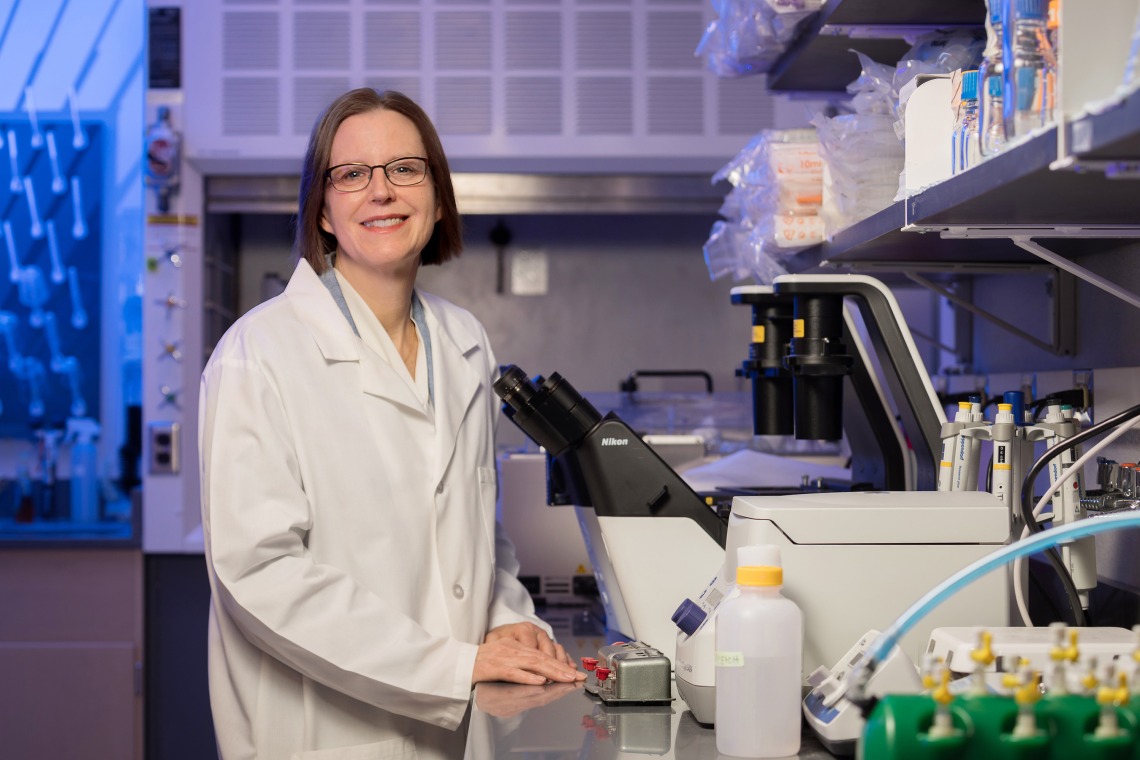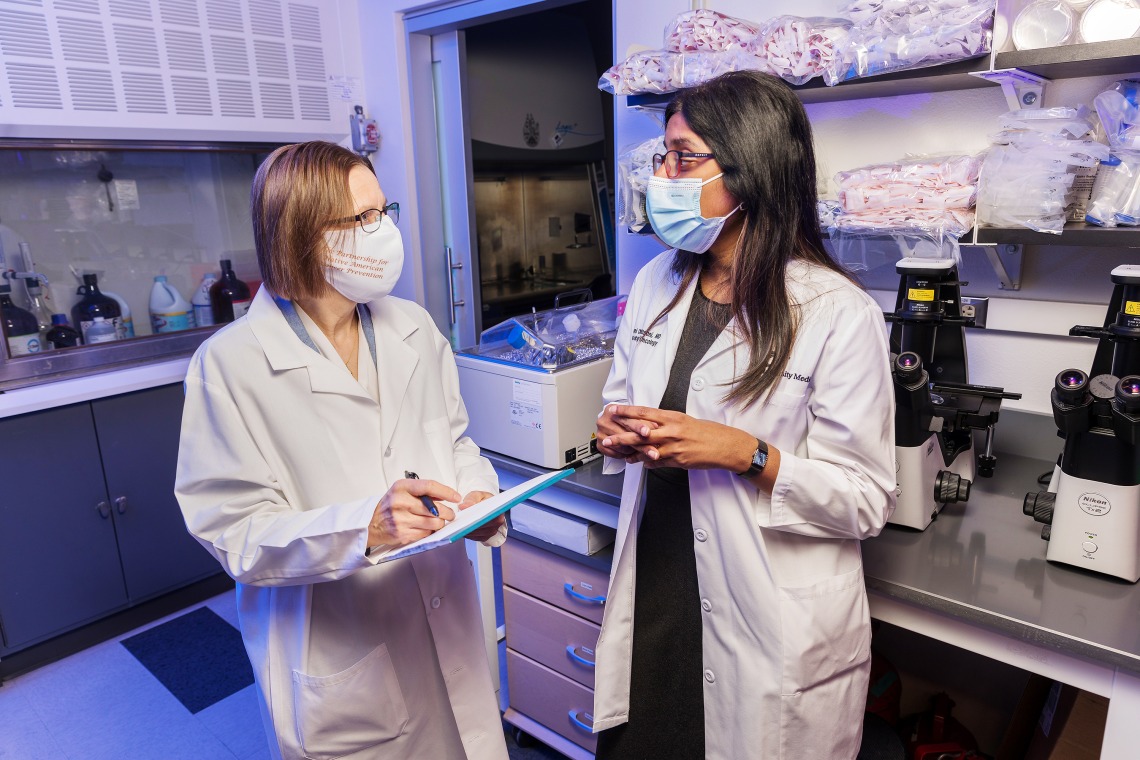Bold New Discoveries
Envisioning the Ginny L. Clements Breast Cancer Research Institute

“It’s devastating to receive a diagnosis of breast cancer, or any cancer,” says Joann Sweasy, director of the University of Arizona Cancer Center. “But we’re here to help, and it’s definitely not a death sentence.”
Sweasy’s pride in what the center offers patients and survivors is unmistakable. And she’s driven to give them more.
“We appreciate the standard of care; it’s often where we start in treatment. But we have to keep pushing that benchmark. We’d like to get to curative.”
Sweasy is clearly determined to continually improve every aspect of care at the UArizona Cancer Center, which is designated by the National Cancer Institute as a Comprehensive Cancer Center. That ambition and a partnership with Ginny Clements are guiding plans for the Ginny L. Clements Breast Cancer Research Institute.
The Plans and the Promise
Establishing the institute with Clements’ $8.5 million gift will increase collaboration between researchers with different specialties and between researchers and clinicians, according to Sweasy and Pavani Chalasani, who oversees breast cancer clinical research at the Cancer Center, among other roles.
“We have a lot of strengths here. The gift gives us a chance to bring them all together, figure out where we need to build even more, bring in more scientists and actually do those projects all of us envision,” says Chalasani.

Joann Sweasy and Pavani Chalasani
The gift includes funding for a new endowed director’s chair for the institute and two professorships. By fall, Sweasy hopes to have hired the director, who will take the lead on selecting the endowed professors and establish the institute’s vision. Under the institute, the Cancer Center team will join collaborating partners from many corners of the university in a new form of exploration.
“We can use the institute as an anchor for people from all types of sciences to think in different ways, to really make the next bold, novel discoveries,” Sweasy says.
Although the institute has yet to truly take form, Clements’ gift has generated great excitement among those who will be part of it. Chalasani, who studies biomarkers, or measurable indicators of disease, in order to understand drug response, looks forward to working with a diverse group of researchers.
“As scientists work together more, we will better understand cancer. The goal is that when someone is diagnosed, their treatment is better because of what we study,” she says.
It’s been 15 years since Chalasani began her residency at the Cancer Center. In that time, she’s seen meaningful advances in the treatment of breast cancer, which she emphasizes is not just one disease.
One type of breast cancer, for example, is known as HER2. Prior to 2000, it was one of the most feared forms. Since then, a drug was found to target HER2 effectively.
“Now, as a medical oncologist, you know you can cure many patients with HER2, even if it’s an aggressive cancer,” Chalasani says.
Taking Research Further
Sweasy has some unexpected research partners in mind — mathematicians, for example — and she is adamant about adding a particular position to the Ginny L. Clements Breast Cancer Research Institute team: patient advocates, cancer survivors with scientific training who will serve as informed conduits between researchers and patients.
“We don’t always include the patient as a central part of research. This institute will do that,” Sweasy says.
As cancer survivors, the advocates will also give the patients hope, Sweasy says. Clements is herself a source of inspiration — she lived through breast cancer and has made generous gifts, including this naming gift, to help others.
“Ginny and the advocates are both integral parts of the institute. They remind us why we’re here and that we really can make a difference, all of us together,” Sweasy says.
Cancer care is not only physical, Sweasy says, and it extends to survivors as well as those actively fighting the disease. The center offers “an incredible network of behavioral and psychosocial support,” she says.
The Ginny L. Clements Breast Cancer Research Institute will bring all these assets together for patients from across Arizona and beyond, Sweasy says.
“It’s going to be pretty amazing, exceptional care.”
